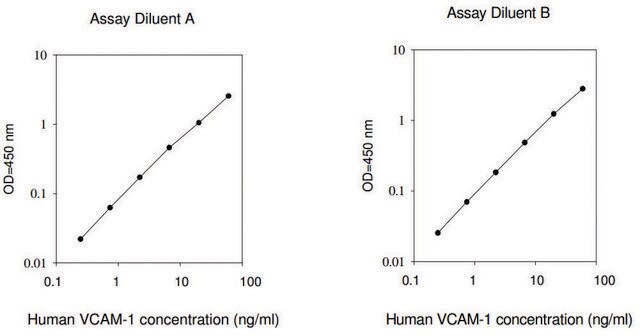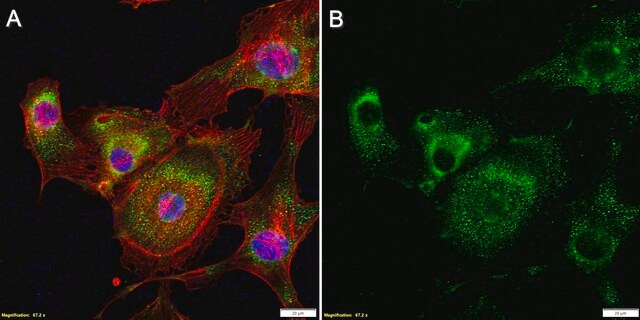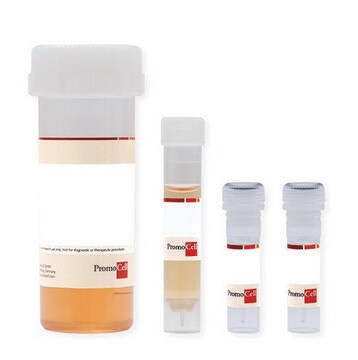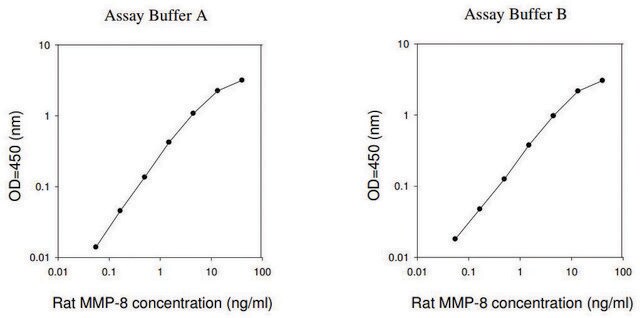S100-05N
Human Dermal Microvascular Endothelial Cells: CADMEC/HMVEC: Pre-Screened for Angiogenesis & VEGF signaling, neonatal
About This Item
Prodotti consigliati
Origine biologica
human blood vessels
Livello qualitativo
Confezionamento
pkg of 500,000 cells
Produttore/marchio commerciale
Cell Applications, Inc
Modalità di accrescimento
Adherent
Cariotipo
2n = 46
Morfologia
Endothelial
tecniche
cell culture | mammalian: suitable
Condizioni di spedizione
dry ice
Temperatura di conservazione
−196°C
Descrizione generale
Endothelial cells (EC) line the blood vessels of the entire circulatory system, from aorta to capillaries, and act as a barrier between circulating blood and the rest of the vessel wall/surrounding tissues. Endothelial cells are involved in the processes of angiogenesis, vasculogenesis, vasoregulation, coagulation, fibrinolysis and selective blood barrier. They are also implicated in pathophysiological processes, including cardiovascular disease and cancer development.
The most commonly used human endothelial cells are Human Umbilical Vein Endothelial Cells, (HUVEC), Human Microvascular Endothelial Cells (HMVEC) and Human Aortic Endothelial Cells (HAOEC). Select lots of HUVEC, HMVEC, and HAOEC have been pre-screened to demonstrate stimulation-dependent angiogenesis and key endothelial cell signaling pathways (phosphorylation of VEGFR, Akt, MAPK, and expression of Tie2, eNOS, Axl and Etk/Bmx.
VEGF-Stimulated Signaling in Pre-Screened Endothelial Cells
VEGF receptor-2 (VEGFR-2) is a major VEGF of endothelial cells. VEGFR-2-mediated signaling plays a critical role in angiogenesis, including regulation of proliferation, differentiation, cell movement, and survival of endothelial cells. VEGF-induced receptor dimerization triggers activation of VEGFR-2 tyrosine kinase and autophosphorylation at a specific set of tyrosine residues, which serve as docking sites for downstream signaling components leading to activation of downstream signaling molecules, including phosphorylation of Akt and p44/42-MAPK.
Expression of Signaling Biomarkers in Pre-Screened Endothelial Cells
Prescreened Endothelial Cells express the following important biomarkers:
- Tie2, a receptor tyrosine kinase critical for the angiogenic remodeling, sprout formation, survival of endothelial cells and vessel stabilization processes; eNOS (endothelial Nitric Oxide Synthase), the enzyme that producse NO which is an important signaling molecule that regulates a diverse range of physiological events and is required for normal endothelial function;
- Axl, a receptor tyrosine kinase whose ligand is the survival factor Gas6 (growth arrest-specific gene 6 product) implicated in many processes, such as cell survival, leukocyte transmigration and neointima formation.
- Etk/Bmx (Endothelial/epithelial Tyrosine Kinase), a member of the Btk family, participates in signal transduction stimulated by growth factor receptors, cytokine receptors, G-protein-coupled receptors, antigen receptors, and integrins, and has been implicated in cell adhesion, migration, proliferation, and survival.
Origine della linea cellulare
Applicazioni
Componenti
Nota sulla preparazione
- 2nd passage, >500,000 cells in Cell Basal Medium containing 10% FBS & 10% DMSO
- Can be cultured at least 16 doublings
Mantenimento delle subcolture
Esclusione di responsabilità
Codice della classe di stoccaggio
11 - Combustible Solids
Classe di pericolosità dell'acqua (WGK)
WGK 3
Punto d’infiammabilità (°F)
Not applicable
Punto d’infiammabilità (°C)
Not applicable
Scegli una delle versioni più recenti:
Certificati d'analisi (COA)
Ci dispiace, ma al momento non ci sono COA disponibili online per questo prodotto.
Se ti serve aiuto, non esitare a contattarci Servizio Clienti
Possiedi già questo prodotto?
I documenti relativi ai prodotti acquistati recentemente sono disponibili nell’Archivio dei documenti.
Protocolli
Technical information for working with human dermal microvascular endothelial cells including thawing, subculturing and cryopreservation
Il team dei nostri ricercatori vanta grande esperienza in tutte le aree della ricerca quali Life Science, scienza dei materiali, sintesi chimica, cromatografia, discipline analitiche, ecc..
Contatta l'Assistenza Tecnica.






